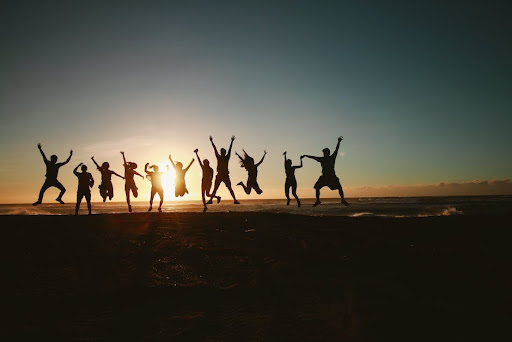The winter weather is very challenging and can put a damper on your mood and mental health. As a result, it can affect your risk of relapse. Therefore, managing these changes can help you to prevent relapse in the darker months. The approach to combating seasonal affective disorder (SAD) at Buena Vista Recovery includes methods that help you to manage your mood and improve your overall mental health. These practices can make a difference in how you feel, helping you to maintain your sobriety whatever the weather.
Seasonal Affective Disorder and Risk of Relapse
SAD is a type of depression with a seasonal pattern. Symptoms can be found throughout the year. Winter symptoms often include a lack of energy, depression, and loss of interest. However, symptoms in the summer often include insomnia, anxiety, and agitation. If you experience SAD, your symptoms will be unique, but the pattern of symptoms occurring with specific seasons will exist.
Like other mental health disorders, SAD can impact your risk of relapse. This is because mental health disorders are often co-occurring with addiction. Therefore, experiencing symptoms, regardless of what they are, can be a trigger that can make you feel cravings for substances you have previously used.
Buena Vista Recovery’s Approach to Managing Seasonal Affective Disorder
Like many mental health disorders, managing your SAD symptoms will be unique to suit your needs. However, the Buena Vista Recovery approach helps you to understand that it is often helpful to reach out to others, incorporate nature into your life, and practice self-care habits that improve your symptoms.
Reaching Out
Getting help and connecting with your community is a way to help manage many mental health disorders, including SAD. When you are struggling, it is easy to want to shut yourself in and “deal with it” alone. However, your community can help you.
When you are experiencing SAD, getting sunlight and prioritizing a natural rhythm of sunlight exposure can be important. In the winter this means getting outside for whatever sunlight is available. However, when you are feeling down, it can be hard to get out of the house. This is where your community comes in. When you reach out to your loved ones, they can support you when you aren’t feeling like you can make the necessary changes to feel better.
Incorporating Nature
Getting outside during the winter months can be difficult. When it is cold and rainy, it is not very motivating to get into nature. However, it can still be helpful to get outside. Research has shown that taking a morning walk is one method that can help decrease symptoms of SAD. While it might not feel like it, a small amount of sunlight can be creeping through the cloud cover, and this can help you to regulate hormones that control sleep, energy, appetite, and more.
If getting outside in the morning doesn’t work for you, that is okay. Spending time in nature at other times can help you to feel better. Finding ways to incorporate nature in the winter might look different than the rest of the year. If you are uncertain, try going on a walk, checking out a park, or trying some winter outdoor activities like skiing.
Self-Care
Caring for yourself during the winter months can be difficult. However, self-care plays an important role in SAD. When you practice self-care techniques like exercise, healthy eating, stress management, and relaxation, you are caring for your mental health. As such, you are improving how you feel. Therefore, while SAD symptoms may occur, you can incorporate these self-care techniques to improve your energy, sleep, and more.
If you find that during the winter months, you tend to fall off of your self-care routines, you are not alone. Setting yourself up for success before the winter months by having a plan is one way to prevent this from happening.
Buena Vista Recovery’s Approach to Relapse Prevention
In recovery, relapse prevention is the primary goal. However, while relapse prevention sounds simple, it is complicated. As you are a unique individual, you will need to find ways to manage your specific relapse risks. Regardless of your specific plan, managing your mental health plays an important role in preventing relapse. Therefore, it is important to consider what mental health challenges you have and how you can care for your mental health needs.
The Buena Vista Recovery approach to managing relapse includes addressing mental health. This begins in treatment where mental health disorders and addiction are both addressed. By gaining the benefits of treatment, you will have the tools to prevent relapse by knowing what your needs are in caring for your mental health. If you struggle with SAD, lifestyle changes like getting into nature or getting enough sunlight can be a part of your mental health care plan. However, it may also include medication or different types of therapy that help you feel your best all year round.
Unfortunately, many parts of the United States are still experiencing harsh winter weather. This can really put a damper on people’s mental health. If you struggle with seasonal affective disorder (SAD), you might be at a higher risk of relapse during certain parts of the year. Fortunately, at Buena Vista, we understand that your mental health plays an important role in your recovery. During treatment, we help clients to build skills that will support their mental health throughout the year, including stress management, finding ways to get outside, and general self-care tools. If you are struggling with mental health and addiction, we can help. Call (480) 741-9414 today to learn more about our addiction recovery programs.




